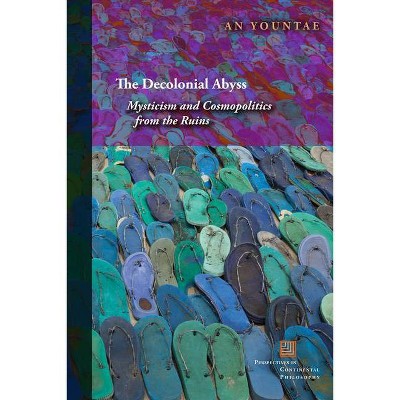Phenomenologies of the Stranger - (Perspectives in Continental Philosophy) by Richard Kearney & Kascha Semonovitch (Paperback)

Similar Products
Products of same category from the store
AllProduct info
<p/><br></br><p><b> About the Book </b></p></br></br>Chiefly proceedings of a conference held in 2009 at Boston College.<p/><br></br><p><b> Book Synopsis </b></p></br></br><p>What is strange? Or better, who is strange? When do we encounter the strange? We encounter strangers when we are not at home: when we are in a foreign land or a foreign part of our own land. From Freud to Lacan to Kristeva to Heidegger, the feeling of strangeness--<i>das Unheimlichkeit</i>--has marked our encounter with the other, even the other within our self. Most philosophical attempts to understand the role of the Stranger, human or transcendent, have been limited to standard epistemological problems of other minds, metaphysical substances, body/soul dualism and related issues of consciousness and cognition. This volume endeavors to take the question of hosting the stranger to the deeper level of embodied imagination and the senses (in the Greek sense of <i>aisthesis</i>). <p/>This volume plays host to a number of encounters with the strange. It asks such questions as: How does the embodied imagination relate to the Stranger in terms of hospitality or hostility (given the common root of hostis as both host and enemy)? How do we distinguish between projections of fear or fascination, leading to either violence or welcome? How do humans "sense" the dimension of the strange and alien in different religions, arts, and cultures? How do the five physical senses relate to the spiritual senses, especially the famous "sixth" sense, as portals to an encounter with the Other? Is there a carnal perception of alterity, which would operate at an affective, prereflective, preconscious level? What exactly do "embodied imaginaries" of hospitality and hostility entail, and how do they operate in language, psychology, and social interrelations (including racism, xenophobia, and scapegoating)? And what, finally, are the topical implications of these questions for an ethics and practice of tolerance and peace?</p><p/><br></br><p><b> Review Quotes </b></p></br></br><br><p>"The text is both eclectic enough to broaden its prospective appeal past any artificially narrow margins and also replete enough with critical and<br>stimulating research that even the most well-informed theorist will discover something fresh and provocative."</p><b>-----B. Keith Putt, <i>Samford University</i></b><br><br>"A welcome and timely contribution at a time when the question of how to relate to the different and other is up front politically, ethically, and philosophically."<b>-----Jim Olthuis, <i>Institute for Christian Studies, Toronto</i></b><br><br>As a whole, this is an excellent contribution to the growing body of literature in philosophy on strangeness, the stranger, and hospitality.-- "--Missiology: An International Review (American Society of Missiology)"<br><p/><br></br><p><b> About the Author </b></p></br></br>Richard Kearney is the Charles Seelig Professor of Philosophy at Boston College. He is the author of over 20 books, among them the trilogy <i>The God Who May Be</i> (Indiana University Press, 2001), <i>On Stories</i> (Routledge, 2002), and <i>Strangers, Gods, and Monsters</i> (Routledge, 2003), as well as works including <i>Debates in Continental Philosophy </i>(Fordham University Press, 2004), and <i>Anatheism </i>(Columbia, 2011). In 2008 he launched the Guestbook Project, an ongoing artistic, academic, and multi-media experiment in hospitality.
Price History
Price Archive shows prices from various stores, lets you see history and find the cheapest. There is no actual sale on the website. For all support, inquiry and suggestion messages communication@pricearchive.us


















